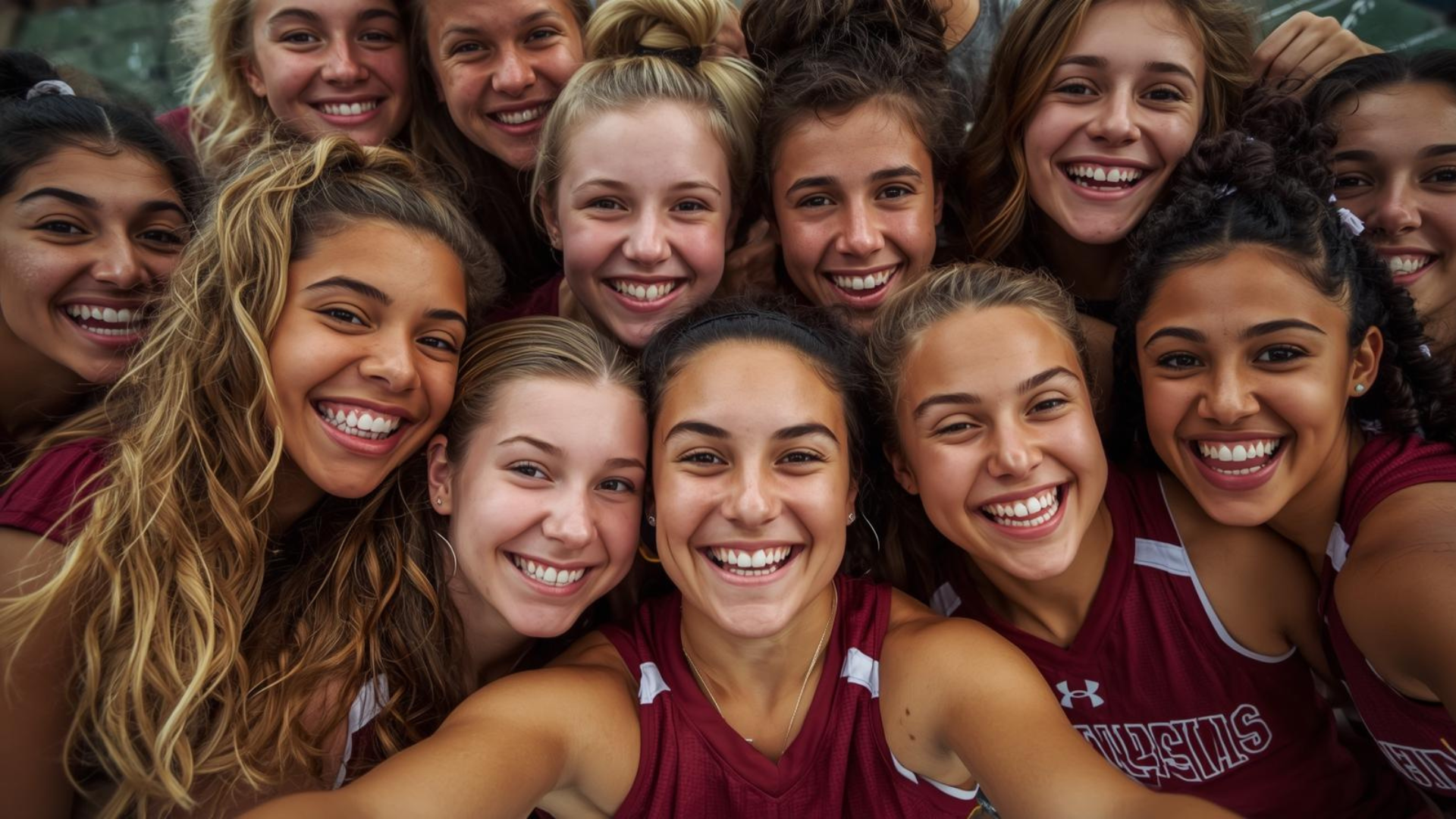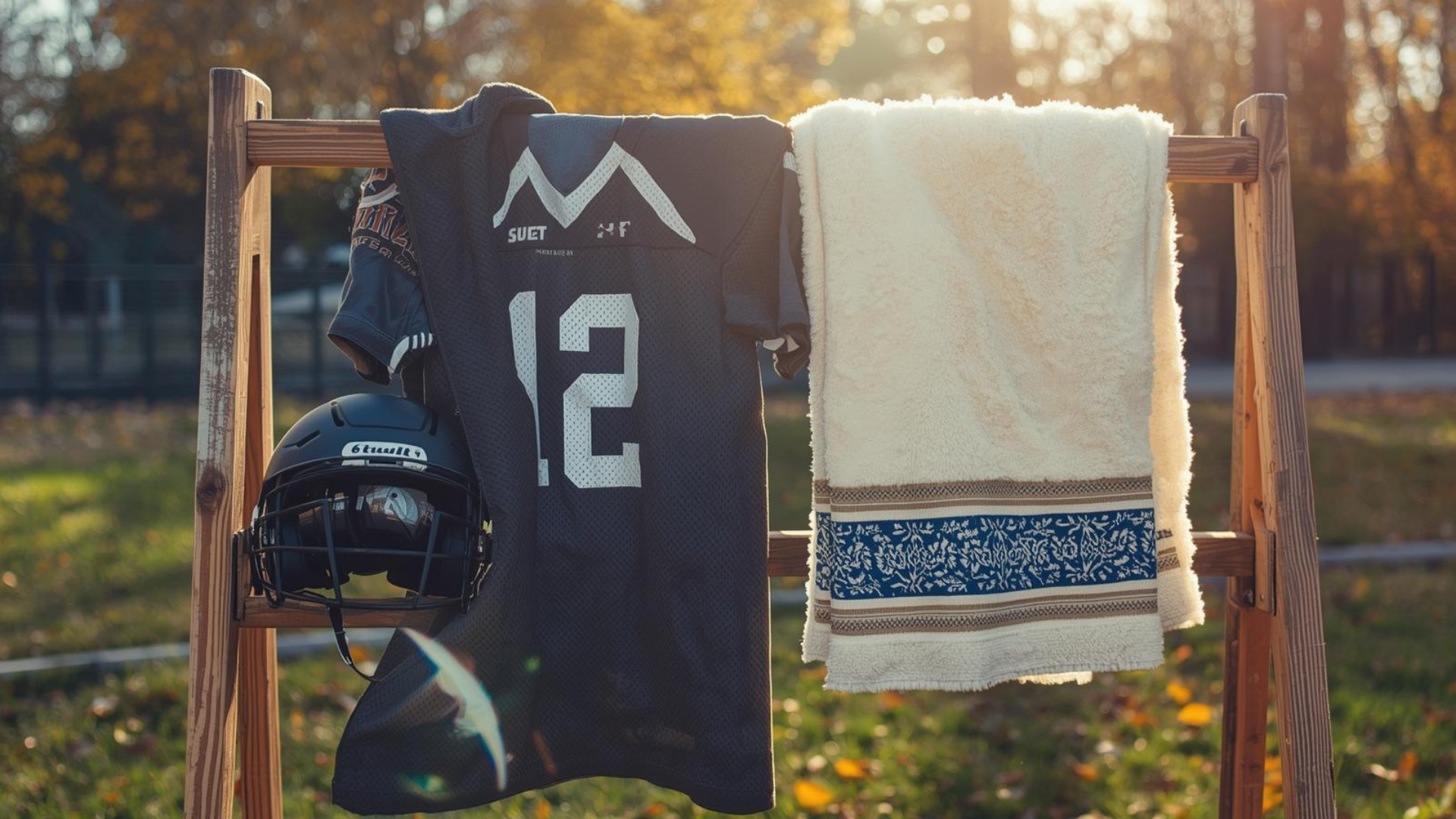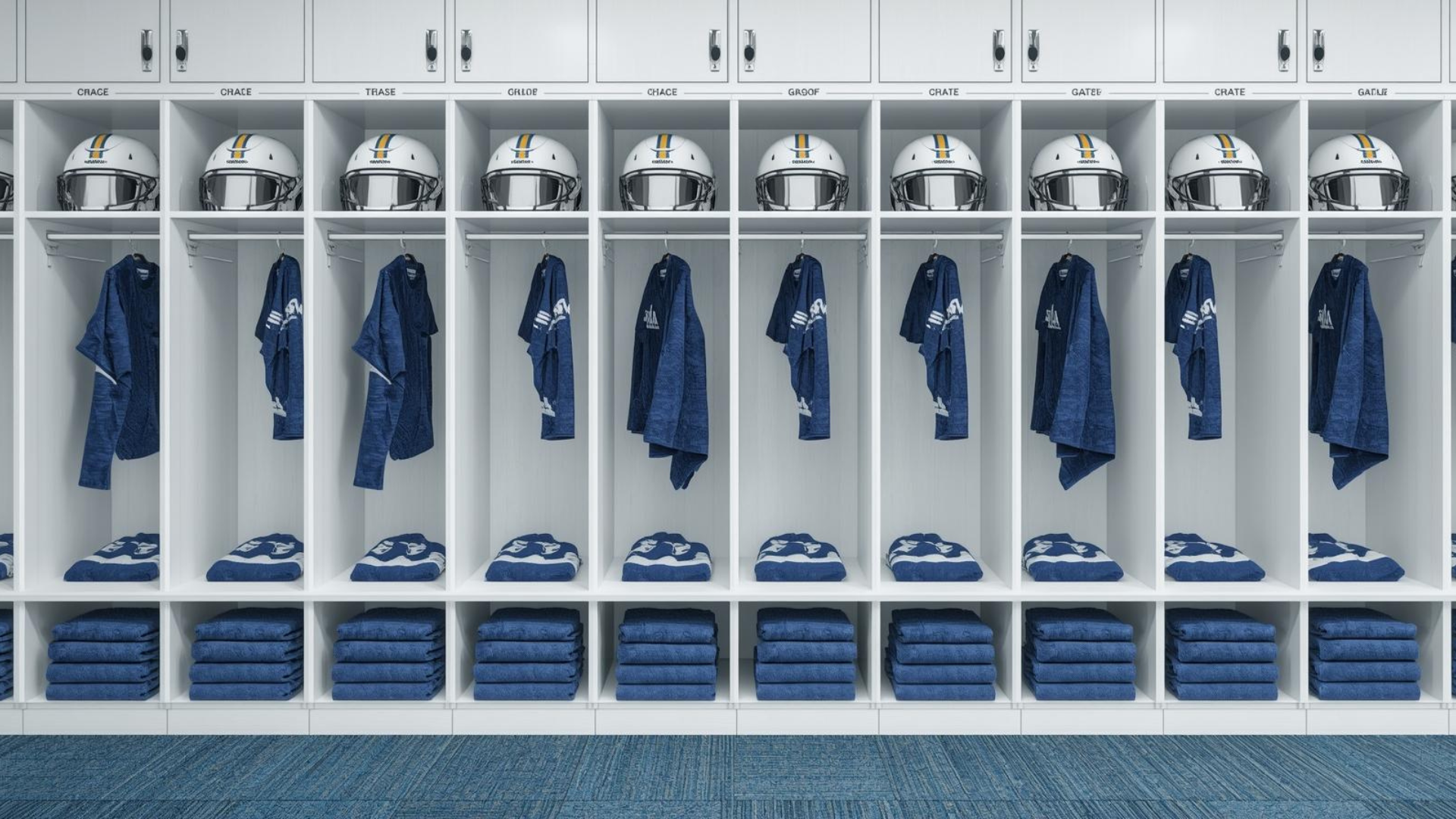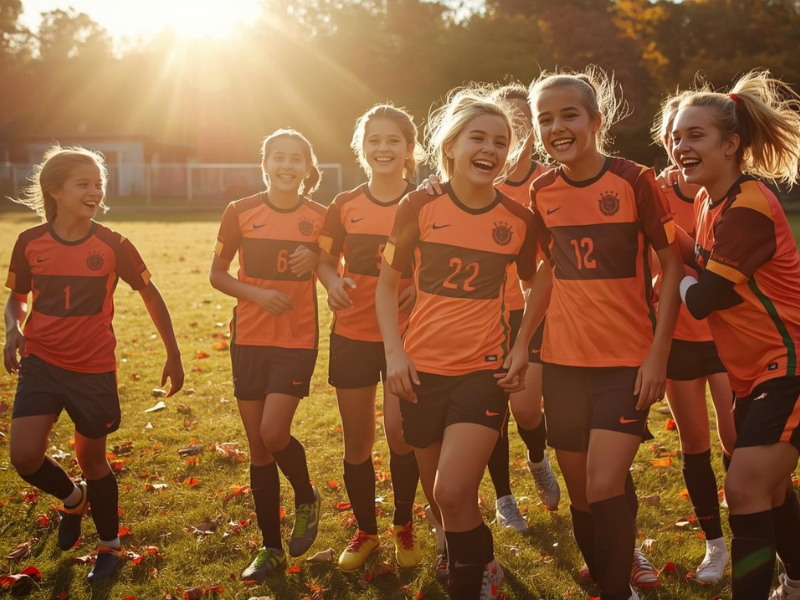Fall sports are all about teamwork, excitement, and cheering from the sidelines, but no parent wants another kind of teammate tagging along: head lice.
To help prevent lice this season, remind your young athletes to avoid sharing personal items like hats, helmets, and hair accessories, and to keep their hair tied back to minimize head-to-head contact. Teach them why it’s important not to share combs, brushes, or towels, and to give a little extra space during those close huddles and post-game celebrations.
Whether your child is playing football, soccer, cheerleading, or cross-country, fall is filled with practices, games, and fun team moments. But with all that togetherness comes a higher chance of lice spreading. It’s not exactly the kind of “souvenir” anyone wants to bring home after a big win!
The good news? A few simple habits, and a little awareness, can go a long way in keeping your athletes itch-free all season long.
Why Fall Sports Increase the Risk of Lice
When you think of lice, school classrooms and sleepovers might come to mind first. But sports teams create a similar environment, one that’s close, social, and often involves shared equipment and physical contact.

Let’s break down why autumn sports can lead to increased lice transmission:
1. Close Physical Contact
Sports like football, soccer, wrestling, and cheerleading often involve head-to-head or shoulder-to-head contact. Lice can’t jump or fly, but they can crawl quickly, especially when heads are in proximity.
2. Shared Gear and Accessories
Helmets, hats, headbands, and even towels can be hot spots for lice transfer. If one athlete has lice and another borrows their helmet or shares a locker, the risk of spread goes up dramatically.
3. Team Spirit = Group Photos and Huddles
Who doesn’t love a good team selfie or post-game huddle? Unfortunately, all those head-to-head moments can provide the perfect opportunity for lice to move from one player to another.
4. Warm, Snug Environments
Autumn means cozy gear, hoodies, hats, and scarves. These items often get shared or tossed together in lockers and gym bags, creating another potential pathway for lice.
5. Busy Schedules Mean Less Detection
During a packed sports season, it’s easy for parents and kids to miss early signs of lice. By the time the itching starts, the lice may have already spread to other teammates.
Understanding Head Lice: The Basics
Before we dive into prevention, let’s clear up some common misconceptions.
What are head lice?
Head lice are tiny, wingless insects that live on human scalps and feed on small amounts of blood. They attach their eggs (called nits) to hair shafts, usually near the scalp, where it’s warm and humid.
Can lice spread disease?
No. Lice are annoying and uncomfortable, but they don’t carry diseases. However, scratching can lead to irritation and, in rare cases, minor infections.
Can lice jump or fly?
No! Lice can only crawl. They spread through direct head-to-head contact or by sharing personal items like hats, brushes, or helmets.
Are lice a sign of being dirty?
Absolutely not. Lice actually prefer clean hair because it’s easier for them to cling to. Anyone, regardless of hygiene, can get lice.
Knowing these basics helps remove stigma and keeps the focus where it should be: prevention and care.
How to Prevent Lice During the Fall Sports Season
Preventing lice isn’t about paranoia, it’s about being proactive. A few smart habits can go a long way in keeping your athletes itch-free.
Here are some simple, effective steps you can take:
1. Avoid Sharing Headgear or Accessories
The golden rule of lice prevention: no sharing items that touch the head. That includes:
- Helmets
- Hats
- Headbands or bandanas
- Hairbrushes and combs
- Towels
If your child must share gear (like team helmets), have them wear a thin, breathable liner cap underneath to reduce direct contact.
2. Label and Store Gear Separately
Use your child’s name or initials to label helmets, hats, and other accessories. Store them separately in their own bag instead of tossing them into shared bins or piles.
A mesh or breathable bag is best, lice can’t survive long away from a human head (usually less than 24 hours).
3. Encourage Head-Check Hygiene
Make lice checks part of your family’s routine, especially during the busy sports season. A quick inspection once a week, particularly behind the ears and at the nape of the neck, can help you catch lice early before they spread.
If your child has long hair, tie it back in a braid or bun to make it less accessible to crawling lice.
4. Teach Kids About Personal Space (in a Fun Way!)
You don’t have to make it scary, just explain that lice spread through head-to-head contact. Encourage your kids to keep their heads and hair to themselves during huddles, selfies, and warm-ups.
Make it playful: “Keep your head in the game, but not in someone else’s hair!”
5. Use Preventive Sprays or Essential Oils (Optional)
Some parents like using natural lice-repellent sprays made with essential oils like tea tree, peppermint, or rosemary. While not foolproof, they can add a nice extra layer of defense and smell great, too.
(Just make sure your child isn’t allergic to any ingredients before using them.)
6. Wash and Air Out Gear Regularly
After each practice or game, air out your child’s gear, especially helmets, hats, and uniforms. Wash items that can be laundered in hot water and dry them on high heat.
For items that can’t be washed (like certain helmets), wiping them down and letting them sit for 48 hours can help eliminate any stray lice.

7. Communicate with Coaches and Teams
If lice are reported on the team, don’t panic, but do act quickly. Notify other parents and encourage everyone to check their kids. The faster everyone responds, the easier it is to stop the spread.
Transparency beats embarrassment every time. Remember: lice happen, and it’s no one’s fault.
Recognizing the Signs: How to Spot Lice Early
Even with great prevention habits, lice can still sneak in. The key is spotting them early, before they multiply or spread.
Here’s what to look for:
- Itching or scratching, especially behind the ears or at the back of the neck
- Small red bumps or irritation on the scalp
- White or tan specks (nits) stuck to hair shafts, they won’t easily flake off like dandruff
- A crawling sensation or feeling something moving in the hair
Pro tip: Use a fine-toothed lice comb under bright light to check for nits or lice.
If you’re unsure, don’t guess, call LiceDoctors for a professional, accurate inspection and treatment.
Common Misconceptions About Lice and Sports
Let’s clear up a few myths that often cause unnecessary stress for parents and athletes alike.
Myth #1: “You can get lice from the gym or locker room floor.”
False. Lice can’t survive long on surfaces, and they don’t jump or crawl around looking for a host. Transmission almost always happens from direct head-to-head contact or shared headgear.
Myth #2: “Athletes with short hair don’t get lice.”
Not true! Lice don’t discriminate based on hair length or texture. While long hair gives them more area to cling to, short hair isn’t immune.
Myth #3: “Only kids get lice.”
Adults can get lice too, especially parents helping with gear or siblings sharing items at home.
Myth #4: “You need to deep-clean the whole house if someone gets lice.”
Thankfully, that’s not necessary. Since lice can’t live long off the scalp, focus on washing bedding, recently worn clothing, and items that touch the head: vacuum surfaces and wash hairbrushes, but no need to go overboard.
Myth #5: “Over-the-counter shampoos are always effective.”
Many lice have developed resistance to drugstore treatments. That’s why professional, chemical-free treatments like those from LiceDoctors are a safer and more effective solution.
What to Do If Your Child Gets Lice
Even the most careful families can face a lice case. The key is to stay calm, lice are annoying, but completely treatable.
Here’s a quick action plan:
Step 1: Confirm the Diagnosis
Before you start treating, make sure it’s actually lice and not dandruff or lint. If you’re unsure, call LiceDoctors for an in-home head check. Their technicians are trained to spot lice and nits accurately.
Step 2: Treat Immediately (and Thoroughly)
Skip the harsh chemicals. LiceDoctors offers 100% natural, non-toxic lice removal treatments performed right in your home. Their experts use a proven method that physically removes lice and nits, no chemicals, no guessing, and no need for repeat treatments.
Step 3: Check the Whole Family
Even if only one child shows symptoms, check everyone in the household. Early detection keeps lice from spreading.
Step 4: Clean Key Items
Wash bedding, pillowcases, hats, and recently worn clothing in hot water. Items that can’t be washed can be sealed in a plastic bag for 48 hours.
Step 5: Return to Normal Life Quickly
One of the best parts of LiceDoctors’ service is that it allows kids to return to school and sports right away after treatment, no need for isolation or embarrassment.
Why Choose LiceDoctors?
If lice do make an appearance this season, you want treatment that’s safe, effective, and fast.
That’s where LiceDoctors shines.
In-Home Convenience
No need to drive across town or sit in a crowded salon. A professional technician comes directly to your home, discreetly and comfortably, at a time that works for you.
Chemical-Free, Natural Treatment
LiceDoctors’ method uses no harsh chemicals or pesticides. It’s gentle enough for children and effective against even the toughest lice.
Experienced Professionals
With over 600,000 families treated nationwide, LiceDoctors is America’s most trusted name in lice removal. Their technicians are highly trained and backed by a board-certified medical director.
Guaranteed Results
LiceDoctors backs every treatment with a 100% guarantee. If the lice return, they’ll take care of it, free of charge.
Discreet and Confidential
Technicians arrive in an unmarked car to protect your family’s privacy. No one needs to know you’re dealing with lice.
Available 24/7
Lice don’t wait, and neither does LiceDoctors. They offer appointments every day, including evenings and weekends, so you can get relief fast.
Building a Lice-Free Team Culture
When everyone, parents, coaches, and players, works together, it’s easy to keep lice under control.
Here’s how to create a lice-aware, stigma-free sports community:
- Open Communication: Encourage honesty about lice without shame.
- Routine Checks: Make weekly head checks part of team health habits.
- Education: Share resources (like this blog!) with parents and players.
- Preparedness: Have LiceDoctors’ number handy in case of an outbreak.
- Positive Messaging: Remind kids that getting lice is common and fixable, not embarrassing.
When we take the fear out of lice, we make room for quick, confident action.

Bonus Tips: Seasonal Self-Care for Young Athletes
Since we’re talking fall sports, let’s also keep our athletes feeling their best overall!
- Hydration matters: Cooler temps can trick players into drinking less water. Keep them hydrated.
- Wash gear often: Sweat and dirt buildup can irritate skin and attract bacteria.
- Healthy scalp, happy hair: Encourage gentle washing and avoid heavy products that can make hair sticky, lice love sticky!
- Rest and recovery: Lice or not, young athletes need plenty of sleep and downtime to recharge.
Healthy habits support both performance and prevention.
Autumn Is for Sports, Not Scratching!
The fall sports season is meant for fun, fitness, and friendship, not itching and frustration. By taking a few preventive steps and staying informed, you can help keep your athletes lice-free all season long.
And if lice do show up? Don’t stress. LiceDoctors is here to help with fast, safe, and guaranteed treatments right in the comfort of your home.
Because every family deserves a lice-free fall, and every athlete deserves to focus on the game, not the itch.
Ready to Get Rid of Lice for Good?
If your child or team has been exposed to lice, don’t wait. Early treatment is the best prevention.
Call LiceDoctors today at 800-224-2537 to schedule your in-home, all-natural lice removal appointment.
Fast. Private. Guaranteed.
This fall, let’s make sure the only thing your child brings home from practice is team pride, not lice.




.webp)
